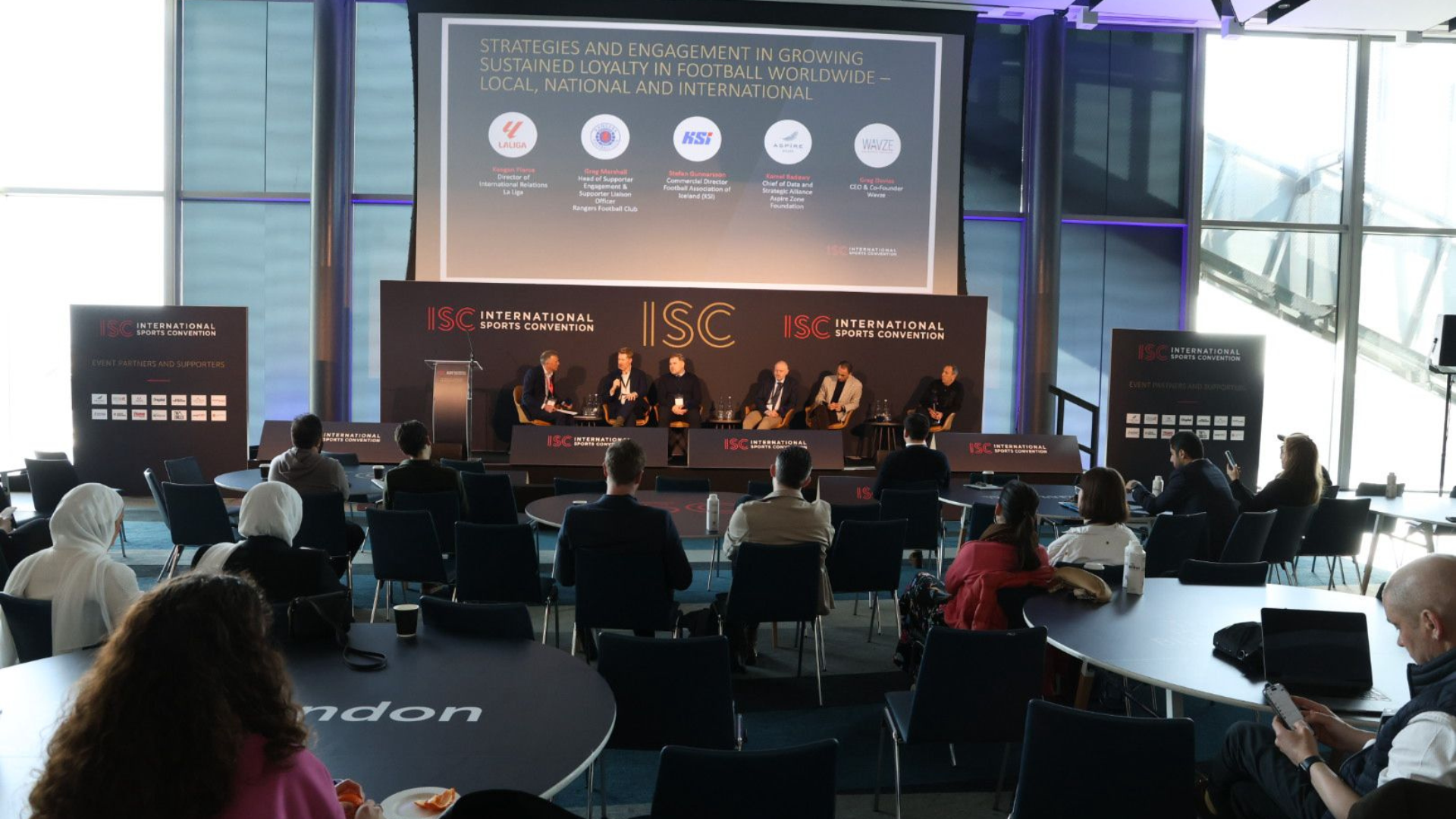“Sport, like all politics, is eminently local,” said LaLiga’s Keegan Pierce at the start of this day two ISC 2025 session on the main stage.
But the opportunities of sport are global – and exploring those possibilities while maintaining domestic priorities is a central strategic tension for many sports bodies.
LaLiga is Spain’s dominant rights holder, with huge national audiences and a competition involving some of the most recognisable teams in world football. On the international stage, however, it considers itself a challenger brand, open to a wide range of ideas to gain ground and ready to commit long-term to new territories.
Rangers’ intense derby with city rivals Celtic is evidence of how local matters can attract attention from around the world. Greg Marshall, the club’s head of supporter engagement, views spikes in interest around the Old Firm games as a global shop window for a club whose popularity within Scotland is beyond doubt.
International engagement must be highly intentional. KSI commercial director Stefan Gunnarson admitted that the association was not initially ready to capitalise on the on-field success of Iceland’s men’s national team. That is something the organisation has been working to address, putting the next phase of its strategy in place ahead of UEFA Women’s Euro 2025.
Profiling the audiences and commercial openings that exist for a sports brand is also critical. At Aspire Zone, a sports and entertainment complex in Doha, Qatar, data is an essential strategic component.
The influx of overseas supporters during the 2022 FIFA World Cup helped Aspire Zone to develop information around fan preferences – especially around female attendees and families – that they could use to inform communications with prospective visitors to Qatar.
It is also now investigating the potential of AI to generate deeper insights about fan behaviour, while also engaging visitors with commercial messaging in real time.
The interplay between sport and culture can spin off some creative means of expressing a team or league’s identity. Wavze is a company that connects sports organisations with emerging artists – often fans or members of the local community – who then provide music for teams and other rights holders.
For Wavze CEO Greg Davies, forging an emotional connection with supporters through music is a crucial part of any culture-led engagement strategy.
“If we don’t embrace what’s important to that young fan,” he said, “we are in danger of becoming obsolete.”
The panel agreed on the impact of music. Sonic branding and track selection has become increasingly integral to in-person experiences and content for LaLiga – which recorded its first official anthem a few years ago – as well as for Rangers and Icelandic football.
Perhaps the most powerful way of engaging fans overseas is through other people. Star international signings have long drummed up popular and commercial interest for overseas leagues in their home markets – though Pierce noted that their influence can only be effectively leveraged through long-term market engagement.
International academies and training camps have also given LaLiga a strong grassroots footing in other countries. And as Marshall argued, fans are often the best advocates for their own communities.
Fan culture, he suggested, has become an ever more compelling export. When people see and understand the passionate commitment supporters feel for a club overseas, it can inspire them to become part of that community.

